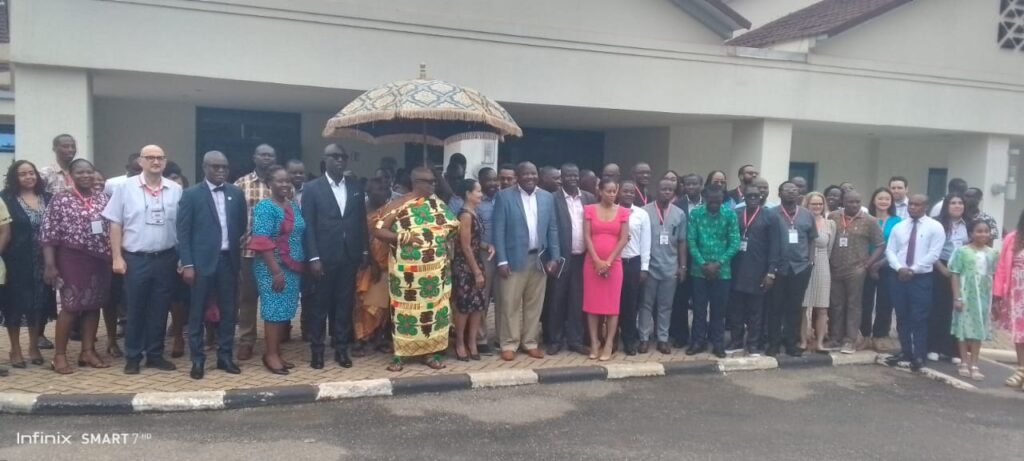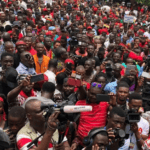Researchers and specialists in Cancer Care are calling for accelerated efforts to create inclusive and robust healthcare systems for breast and gynecological cancers in low and middle-income countries, especially in West and Sub-Saharan Africa.
The World Health Organization (WHO) projects that by the year 2030, the world will be recording some 21.4 million new cases of cancer and MORE THAN 13.2 million cancer deaths each year, with some two-thirds of all cases expected to occur in less developed countries.
This projected burden on developing economies took center stage at this year’s 8th Annual Symposium and 20th anniversary of the International Center for the Study of Breast Cancer Subtypes Conference (ICSBCS) held in Kumasi.
Addressing the conference, the Chief Executive Officer of the Komfo Anokye Teaching Hospital Prof, Dr. Otchere Addai Mensah insisted that paying critical attention to breast and gynecological cancers was urgent as women disproportionately bear the greater burden of the worrisome projections.
He pointed out, “Research conducted under our collaboration has proven that there are some patterns of breast cancer knowns as triple negative breast cancer that is more aggressive than others. Unfortunately, these triple negative breast cancers are common among women from West Africa and African American Women given their west African heritage.”

“Even more catastrophic is the fact that the growing cancer burden will be disproportionally borne by women due to factors such as gender discrimination, stigma, violence and cultural taboos all of which combine to limit women’s choices in seeking care even when available,” Prof Addai Mensah noted with concern.
ICSBCS Contributions:
In the past 20 YEARS ICSBCS has improved health outcomes through research and direct patient care facilitated by its International Breast Registry, immunohistochemistry I.H.C. training programs and through the telemedicine tumor board conferences.
Its Founder and Executive Director Prof. Lisa A. Newman Indicates that the joint studies have identified similar genetic markings explaining how BLACK AMERICAN women and western – sub Saharan women have similar susceptibility to aggressive strains of breast cancers.
Eill Cornell Medicine-New York Presbyterian Hospital Network
The Professor of Surgery with the Weill Cornell Medicine-New York Presbyterian Hospital Network explained, “What we have learnt over the years is that women in western sub Saharan Africa including Ghana and Nigeria have very high rates of triple negative breast cancer.”
We have learnt that some of the genetic markers developed in Western Sub Saharan Africa are seen in African Americans because of our common ancestry but different infectious diseases have a different epidemiology in East Africa,”
“Ultimately learning more about the genetics of breast cancer, will lead to better treatment for breast cancer for women around the world and better ways to prevent breast cancer in women around the world,” Prof. Newman commended.

A surgeon with the Komfo Anokye Teaching Hospital Dr Ishmael Kyei recounted the wealth of knowledge the collaboration has brought to cancer care; a feat he admitted would have taken a much longer time for less resourced countries to achieve individually.
“When it comes to breast and gynecological cancers, there are new developments every day. If we were going to rely on ourselves to find out new things about breast cancer, it is going to take a really long time. So these collaborations bring in new ideas, findings, new treatment options to us,” he emphasized.
8th Symposium and 20th Anniversary
This year’s conference hosts oncological surgeons and experts in related disciplines from Ghana, Nigeria, Kenya, Uganda and Ethiopia.
The theme for this year’s 8th annual symposium “Improving Breast & Gynecological Cancers; Management and Outcomes in Low- and Middle-Income Countries comes under the umbrella 20th year anniversary theme of ‘20 Years of Excellent Collaborative Breast Cancer Research and Management”.
Source: Ghana/Starrfm.com.gh/103.5FM/Ivan Heathcote – Fumador




